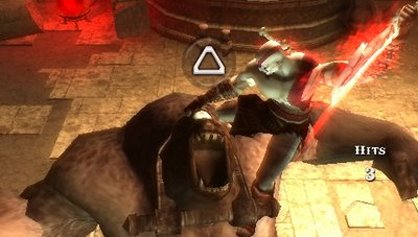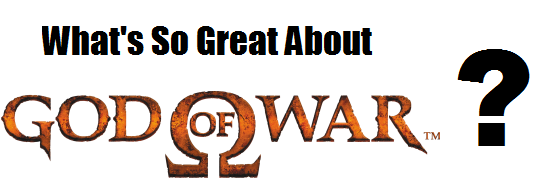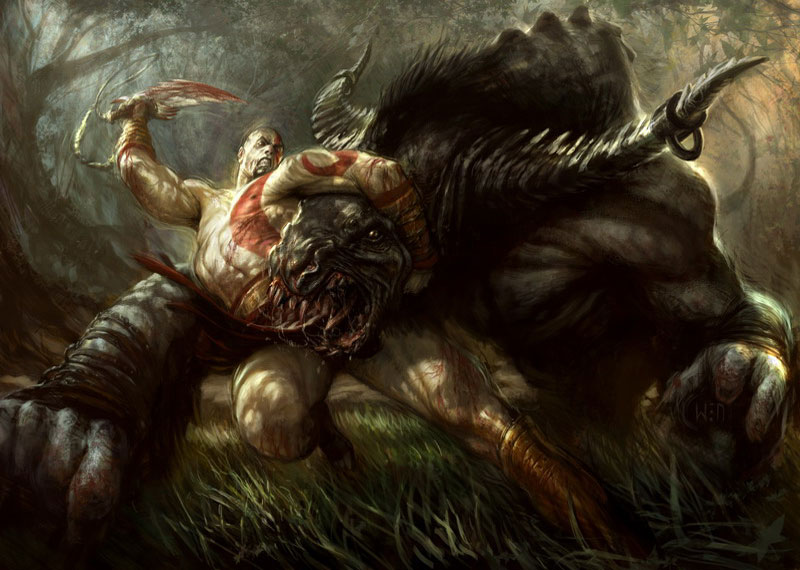Last updated on November 5, 2013
16 There are six things which the Lord hates,
Yes, seven which are an abomination to Him:
17 Haughty eyes, a lying tongue,
And hands that shed innocent blood,
18 A heart that devises wicked plans,
Feet that run rapidly to evil,
19 A false witness who utters lies,
And one who spreads strife among brothers.– Proverbs 6
Can a game represent these traits? Well, let’s find out in the most roundabout fashion possible!
I’m still trying to figure out what’s so great about God of War – I’m guessing it is simply the aesthetics. Do gore and nudity a great game make? The problem, in that sense, is any R-rated movie can shove vulgar images on the screen. They can attempt to motivate sexual desire or bloodlust, but there’s a reason why they call these “pulp” or “grindhouse” – it’s not high art, by any means. The combat, from my perspective, doesn’t reach the height of a Ninja Gaiden, or Bayonetta, or Devil May Cry, or even Dante’s Inferno – so the fuss is simply because it looks pretty and makes you feel like you’re the king of the world. If video games existed as mere power fantasies, this would suffice, but what am I getting out of the experience?
Perhaps I’m wrong in this assessment, but there’s an argument to be made for God of War’s popularity, and it certainly isn’t because the game remain an instant classic as a game. As a recreation of the tropes of Homeric epics and Greek tragedies, it’s a fitting homage to such works of civilization that have influence millions upon millions of writers and artists. As a way to release rage or anger, you always win unless you don’t know how to dodge attacks. The executions probably remain particularly satisfying. As a fun little game…well, it’s mediocre, all in all. I’ve barely even played it and I can tell you that much. Maybe I’m just not a fan of David Jaffe’s work (creator of Twisted Metal, the car combat game), but I don’t find hyperviolence automatically sells the game. I need something more substantial than that.
So, let’s take a long, hard look at this series, sees how it stands up to its peers, and offer some final conclusions away from the bias of the video game media.
———
What is the purpose of the combos in God of War?
To look cool.
I imagine someone might make the argument that somehow they are strategically different, but they don’t exist for any actual purpose. You can proceed throughout the entire game just through the use of one single combo attack – hammer on that button, gents! Show that minotaur who’s boss! Other than a few well-timed rolls to avoid said minotaur’s big attack range, you’re not going to need a whole lot of quick thinking. Just hammer away and you’ll emerge victorious. This makes the entire notion of the combo system superfluous, then – why bother having all of these unique attacks if they’re not going to do anything substantially different?
Similar action games of recent years present combos with a particular purpose. Let me borrow an example from Ninja Gaiden – the first Alma battle. The strategy is to use the flying cicada slash to, hopefully, knock her down. Once you do that, she gets stunned on the ground. Now, one can go for either a long combo to kill her quickly, or a short combo to remain safe. The purpose of the short/long combos seem clear – if you have an opening, go for it (or if you think your reflexes are up to the task). If you’d rather play it safe, throw out a short one and retreat. They give you a lot of options because you can tailor your use of combos to your situation. There’s variety in them precisely because, as a general rule, longer combos = more damage and more recovery time. Thus, when there’s a huge move list to filter, you’ll find combos that fit your personal sense of timing.
The same goes with Bayonetta, at least on anything above Normal (and especially Hard and Non-stop Infinite Climax mode (yes, I know that sounds funny)). As much as there is a great variety of weapons, each doesn’t exist merely to look cool, although that happens to be the case. I could use, for example, the Shotguns + Odette (ice skates that create ice – nifty) because I want fast, long range weapons and I want to be able to move fast without using the Beast Within (panther form) every time I run away. Still, there’s ton of variety in your combat options, so anyone can find something to love. In addition to that, combos have scoring potential – variety remains intrinsic to getting a great score in Bayonetta’s medal system, as using the same moves over and over reduces how many points they give. Losing no health also provides a scoring bonus, as does dodging. Dodging attacks at the last second activates Witch Time, which slows time AND doubles your scoring potential – this makes long-form combos absolutely essential to racking a huge score.
Dante’s Inferno has this to a lesser degree – the long range Cross seems to beat everything, whereas Unholy got the shaft as enemies make scythe combos difficult to perform. But, for God of War, whatever weapon you want is fine – they are all just as viable because their purpose in the game has no bearing other than aesthetics. Do I want to use the flaming whips, or the fists that smash people? There’s not a whole lot of combat choice that have any meaningful bearing on the way you play. Variety exists purely for variety’s sake. I’d call that bad game design. Tell me WHY I would want to use anything other than the default weapons, or how they would have any real bearing on the game mechanics.
Furthermore, quicktime segments abound in God of War. Quicktime segments are parts of a game where the player watches a cutscene and waits for the game to display a particular button press or sequence of button presses. Press them correctly, and you succeed; press them wrongly, and you die and/or start again. Shenmue introduced these to the world at large, and they haven’t gotten better. Heck, even Bayonetta has a few that I equally loathe. God of War’s quick time, on the other hand, usually doesn’t kill you when you fail (though there are exceptions). So why make them a central game mechanic?

Well, it’s an admirable attempt to make the final blows more “cinematic”. But there’s a pitfall in this: most quick time events contain attacks and movements you can’t achieve in the game. Literally, the game takes control out of the hands of players and shows them something cool…that they can’t do. I find these totally break the immersion of playing a character, and in God of War, the name tells us the point: to be Kratos. So why wrest control from my hands? Find some way to integrate me into the story – give me the ability to jump on a cylcops’ head and land the killing blow. I don’t understand why this is so hard – just make the game A game, a fully fleshed-out combat mechanic that I employ, not the game.
It’s the problem with the whole series – it’s the illusion of success. It’s throwing mechanics around without giving them any life or meaning. It’s violence and murder without context, somehow justifiable in lieu of its Greek roots. Perhaps the first meant to be little more than a game, but like all franchises they must inject meaning and purpose into the proceedings and whitewash the hero’s action in the end.
In effect, it’s a nihilistic video games series – that’s what is wrong with God of War.


